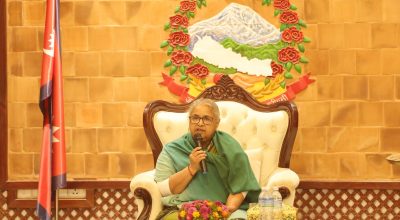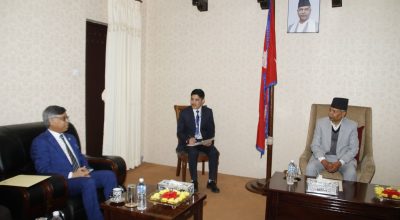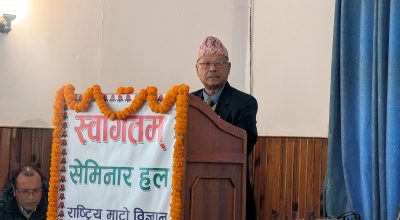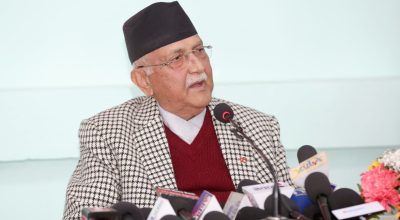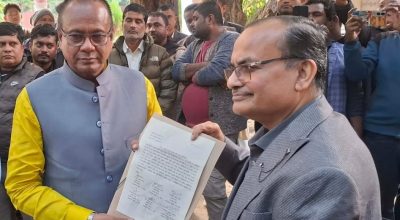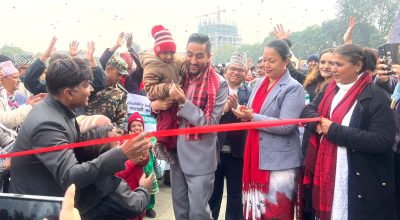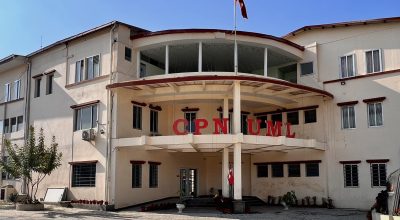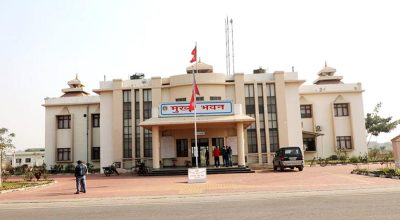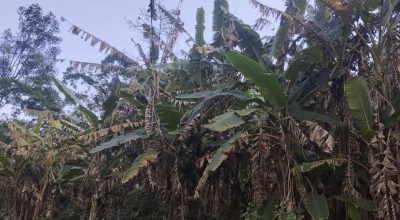
KATHMANDU, 21 April : The Asian Development Bank (ADB) Director General for South Asia Kenichi Yokoyama said improved portfolio performance is key for timely delivery of development results and securing higher and sustained concessional resource allocations. He was speaking at the opening session of a 2-day country portfolio review meeting organized by the Government of Nepal and ADB to assess the progress of ADB-supported development projects.
“The Ministry of Finance (MOF) is proactively addressing issues to improve project implementation. Nepal needs to achieve at least $350 million to $450 million disbursement per year to be considered for higher concessional resource allocations based on ADB’s performance-based allocation system,” said Mr. Yokoyama. “Higher disbursement is doable with collective efforts of the government and ADB by pursuing higher implementation disciplines.”
Nepal Finance Minister Prakash Sharan Mahat chaired a session on sector and project performance, attended by secretaries of the Government of Nepal, senior officials, project directors, and staff from ADB’s Nepal Resident Mission.
“We appreciate ADB’s support to Nepal’s development over the years. The government is committed to overcome the challenges related to project implementation and disbursements and improve capital expenditure for development impact on the ground for Nepali people,” Mr. Mahat said.
At a special ceremony held in conjunction with the meeting, Finance (Revenue) Secretary Ram Prasad Ghimire presented awards to ADB-supported projects for their excellence in effective project management, gender equality, and social inclusion, environmental and social safeguards monitoring. The projects that were awarded include Urban Water Supply and Sanitation (Sector) Project, Bagmati River Basin Improvement Project-Additional Financing, SASEC Highway Improvement Project, Rural Enterprise Financing Project, and Power Transmission and Distribution Efficiency Enhancement Project.
As of 31 December 2022, ADB’s active portfolio in Nepal stands at around $3.2 billion supporting a broad range of key sectors: energy, transport, agriculture, water and urban infrastructure and services, rural development and natural resources, health, and education.
“In 2022, the overall portfolio performance in Nepal was lower than expected affected mainly due to insufficient project staff and high turnover, challenges in contract management, delays in environmental and land clearances, and disruption of construction supply chain,” said ADB Country Director for Nepal Arnaud Cauchois. “Following the review, MOF and ADB will agree on specific actions to overcome the challenges and we are hopeful that project implementation and disbursement will pick up pace,” he added.
Since the start of its operations in Nepal in 1969, ADB has provided about $7.6 billion in financial and technical assistance to the country.
ADB is committed to achieving a prosperous, inclusive, resilient, and sustainable Asia and the Pacific, while sustaining its efforts to eradicate extreme poverty. Established in 1966, it is owned by 68 members—49 from the region.





